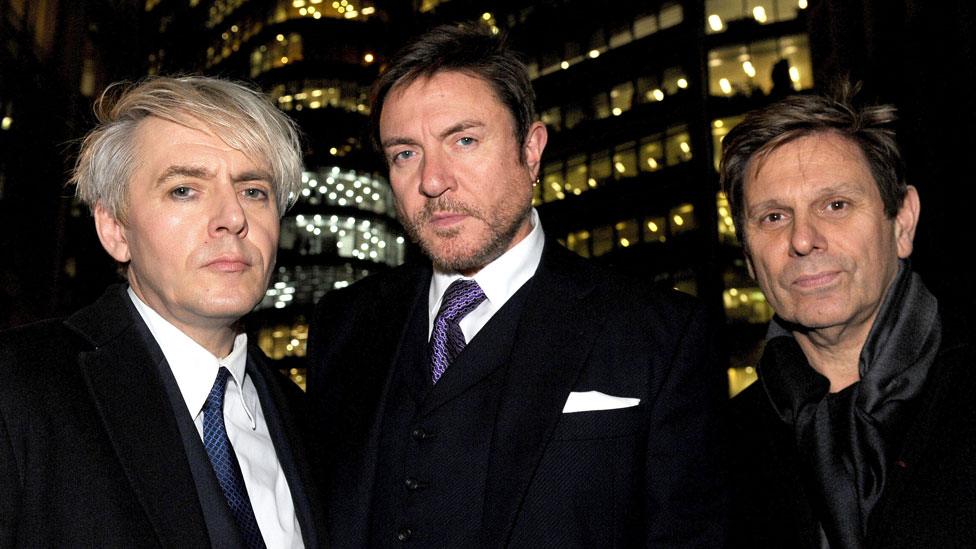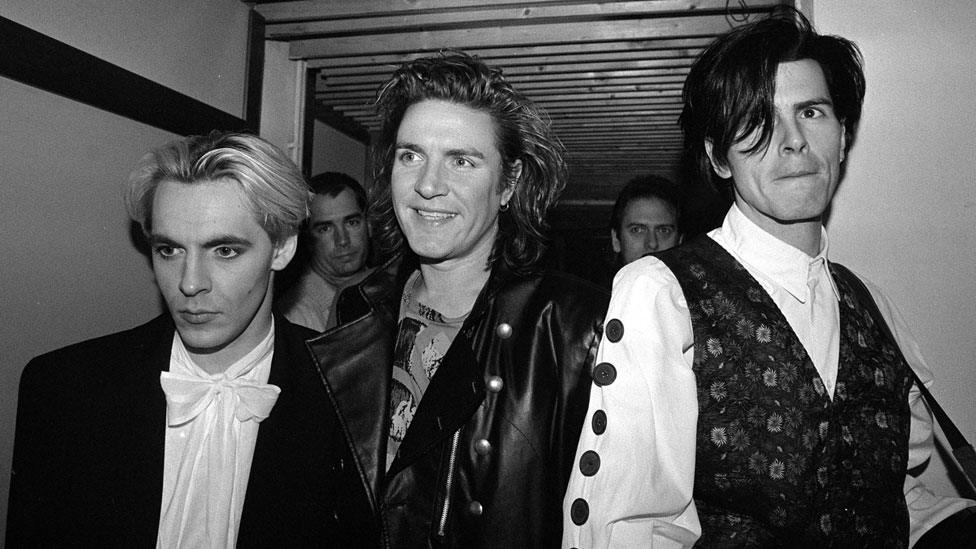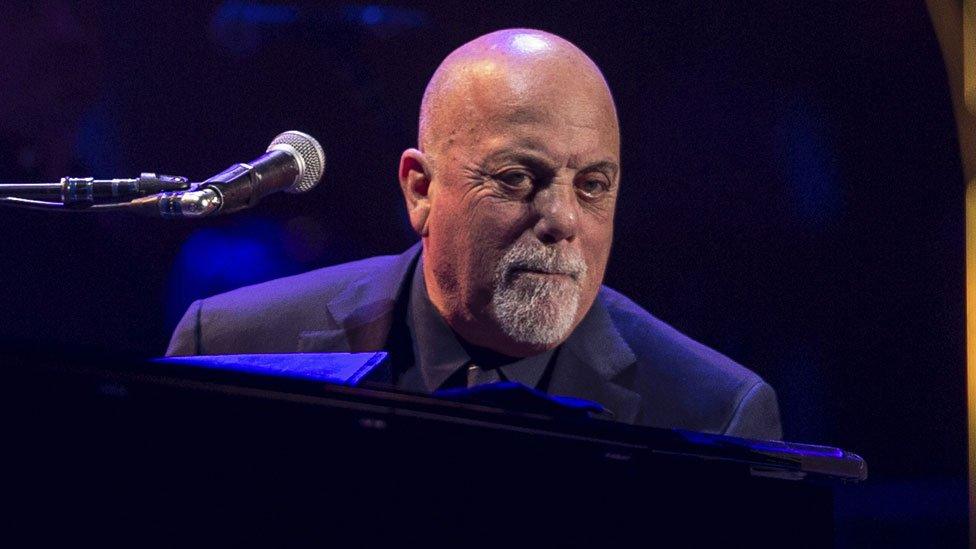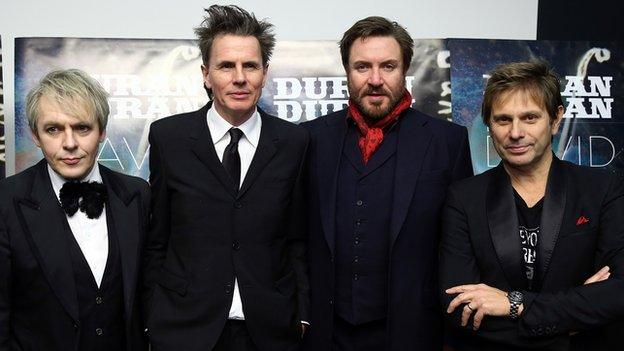Duran Duran 'shocked' after losing legal copyright battle
- Published

Nick Rhodes, Simon Le Bon and Roger Taylor were all involved in the legal action
Pop group Duran Duran have said they are "outraged and saddened" at losing a High Court fight to reclaim US rights to some of their most famous songs.
"We are shocked that English contract law is being used to overturn artists' rights in another territory," said founder member Nick Rhodes.
The group had argued that US copyright laws gave them the right to call for a reversion of copyright after 35 years.
Girls on Film, Rio and A View to a Kill were among the disputed tracks.
'Bitter taste'
The group had sought to terminate the grant to Gloucester Place Music Ltd, part of EMI Music Publishing, of US copyrights in their first three albums.
The albums - Duran Duran, Rio and Seven and the Ragged Tiger - contained some of the band's biggest hits, among them Hungry Like the Wolf and The Reflex.
A View to a Kill, the theme song to the 1985 James Bond film of that name, was among other songs the band had sought to reclaim.
But lawyers for Gloucester Place Music Ltd successfully argued that English laws of contract stopped them from doing so.
Gloucester Place Music, as part of EMI Music Publishing, are ultimately owned by US business Sony/ATV.
In a statement, the Sony-owned company said it was "gratified by the court's decision".

The British pop band enjoyed huge success in the 1980s
"EMI has nothing but the highest respect and admiration for Duran Duran and their great songs," the statement continued.
"This has not been about seeking to challenge the US laws on copyright terminations, but simply a contractual issue in the jurisdiction of the UK courts to clarify the parties' rights on various songs."
'Very bad precedent'
Rhodes said on Friday: "We signed a publishing agreement as unsuspecting teenagers, over three decades ago, when just starting out and when we knew no better.
"Today, we are told that language in that agreement allows our long-time publishers, Sony/ATV, to override our statutory rights under US law.
"This gives wealthy publishing companies carte blanche to take advantage of the songwriters who built their fortune over many years, and strips songwriters of their right to rebalance this reward.
"If left untested, this judgment sets a very bad precedent for all songwriters of our era."
Singer Simon Le Bon echoed his bandmate's sentiments, saying the case had left the group "with a bitter taste".
"I know that other artists in similar positions will be as outraged and saddened as we are," he added.
Le Bon and Rhodes were both involved in the legal action, as were Roger Taylor, John Taylor and former member Andrew Taylor.

Analysis

By David Sillito, BBC media correspondent
The history of pop music is littered with bands who signed deals they later regretted.
The 35-year rule in America gave artists from the late 1970s onwards a chance to escape those contracts and claim back ownership of their copyright.
The record industry feared it would be a calamity given how lucrative back catalogues have been to them over the years. American acts such as Billy Joel [pictured], Devo and Blondie all sought the copyright reversion - but it seems it's more complicated for British acts.
Duran Duran are very disappointed, but with plunging sales of music the prize of copyright ownership isn't what it once was.

At a hearing in London last month, Gloucester Place's lawyers asked Mr Justice Arnold to rule that Duran Duran's members had breached English law by seeking to exercise their reversion rights in 2014.
On Friday, Mr Justice Arnold ruled in Gloucester Place's favour.
"Not without hesitation, I have come to the conclusion that the [Gloucester Place] interpretation of the agreements is the correct one," he said on Friday.
"I conclude that [the group members] have acted in breach of the agreements by serving the notices, or, where they have not yet taken effect, will do so if they are not withdrawn."
The judge said the language of the copyright agreements "would have conveyed to a reasonable person... that the parties' intention was that the 'entire copyrights' in the compositions should vest, and remain vested, in the claimant (Gloucester Place) for the 'full term' of the copyrights."

Follow us on Facebook, external, on Twitter @BBCNewsEnts, external, or on Instagram at bbcnewsents, external. If you have a story suggestion email entertainment.news@bbc.co.uk, external.
- Published3 June 2016

- Published24 July 2014
